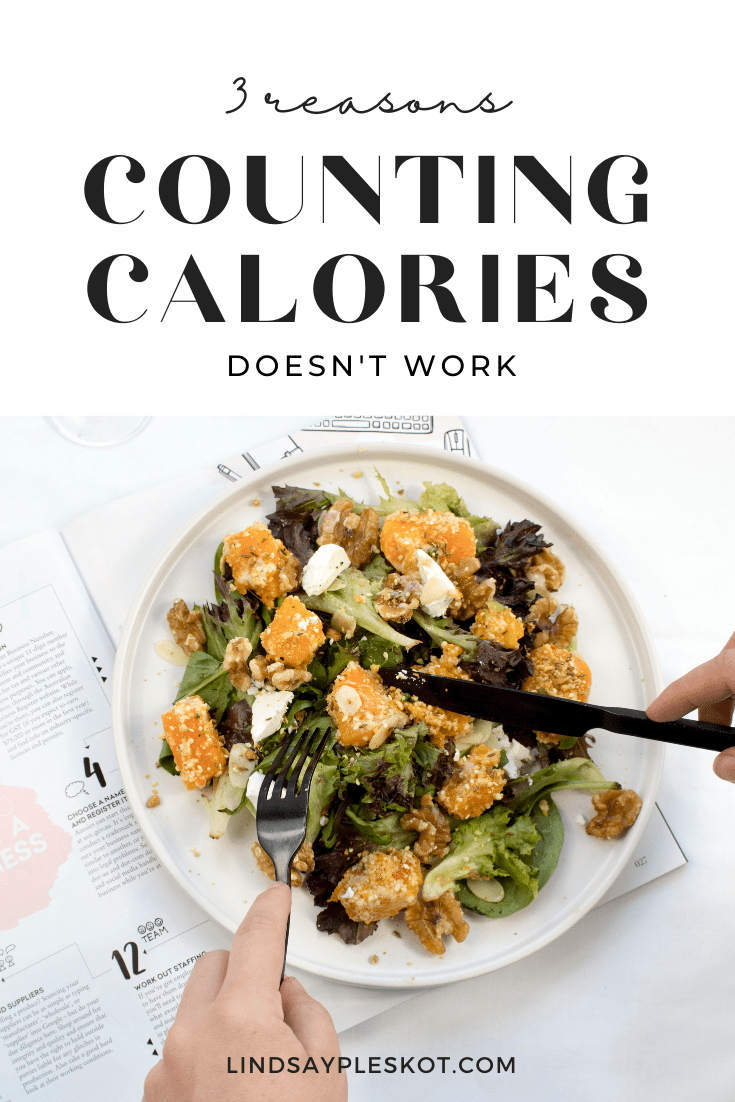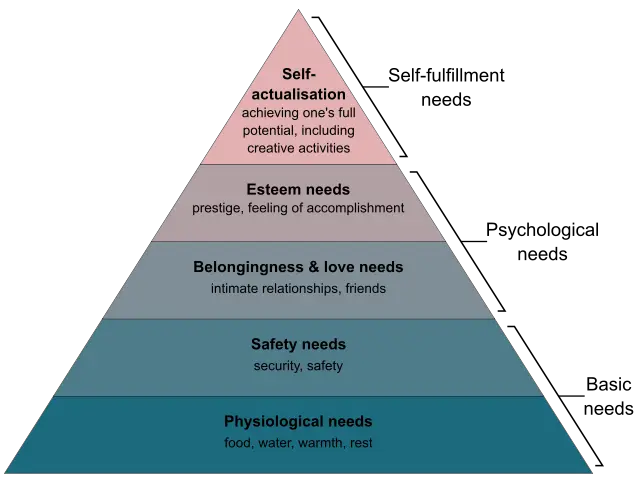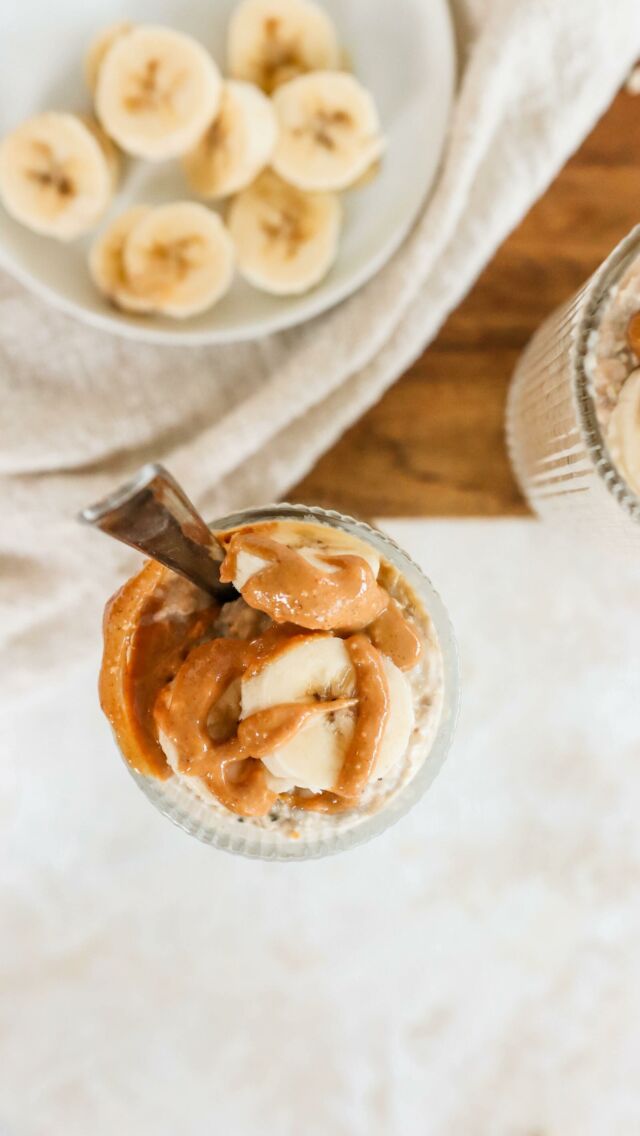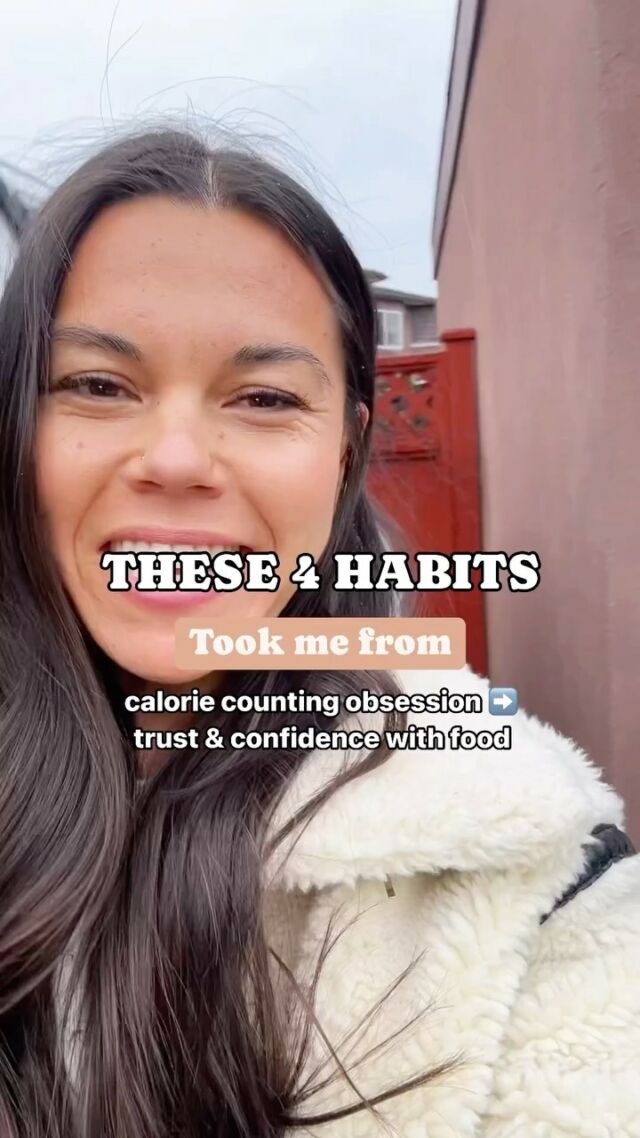Counting calories can be tempting, we get it! But in the end, it gives us a false sense of control and leads us to focus on outside factors determining the “right” way to eat, rather than trusting our own bodies. It can also rob us of our joy, connection, and time and negatively impact our relationship with food, our psyche and our metabolism.
As an intuitive eating dietitian, I want to arm you with the facts so that you can make an empowered decision on the subject. Here we dive into why we might count calories, why you may want to stop counting calories, 5 tangible steps to stop counting calories obsessively, as well as debunking some common calorie myths.

Human beings crave certainty. It’s hardwired into our brains to find solace in knowing what to expect. So it’s no wonder many of us find comfort and a false sense of control in counting calories. Counting calories can give us a feeling of safety because we believe that as long as we don’t go over our target limit, nothing ‘bad’ will happen.
It can also make us feel accomplished day to day, as we utilize “willpower”, calorie tracking apps, and diligent label reading to make sure we’re “okay”. This mentality makes sense, given we’ve all likely experienced diet culture to some degree, which sells us the lie that weight loss is as simple as calories in vs. calories out and that counting and cutting calories will support our health.
But is this really true? As an intuitive eating dietitian, let’s do a deep dive into:
- The psychology behind why we count calories
- The research on why you should stop counting calories
- 5 steps to stop counting calories obsessively and learn to cultivate body trust
- Some serious myth busting on the subject!
So let’s begin.
Off the top, we often hear these two questions:
Ready to Transform Your Relationship with Food?
Explore not just what you eat but why you eat, how you feel when you eat and any patterns that affect how you feel or impact any choices you make and start your journey to food freedom today!
Why do we Count Calories?
From a young age, we’ve been taught to strive for the right answer. Whether it was a spelling bee where you spelled the word perfectly or it was a math test that you aced, we’ve been conditioned to feel affirmed in our value by getting the answer right.
This mentality also can bleed into our relationship with food, especially when we’re surrounded by diet culture messaging telling us exactly what the “right” and “wrong” way to eat is (and this messaging changes constantly!) It makes sense why we’d feel overwhelmed, which is why many of us turn to calorie counting to feel in control.

As mentioned above, humans need certainty in their lives. It’s what brings us a sense of safety and security, and as shown in Maslow’s Hierarchy of Needs (above image), safety and security come in second to our most basic physiological needs: food, water, warmth, and rest.
According to this model, needs lower down in the hierarchy must be satisfied before individuals can attend to needs higher up. Recognizing that we live in a society where weight stigma, fat phobia, and thin privilege exist (more information on these concepts here), it’s clear that when we zoom out from the desire for weight loss, what we might really be trying to achieve is a sense of safety and acceptance within our community.
What’s one sure way to gain a false sense of control when trying to achieve our safety needs? Calorie counting.
Should You Stop Counting Calories?
Although diet culture may lead you to believe that counting calories will lead to long term weight loss and will be easy to sustain, this is simply not the case. Here’s why:
You can’t fight your biology
Many of our clients recount their experience of using a calorie counting app or finding a calorie calculator online, to determine how many calories they should have in a day. They may have even heard about a friend who went on a low calorie diet and lost weight, using these apps to keep them on track. Most of these calorie limits range between 1200 – 1500 kcal/d for grown adults, which is wild, considering 1200 kcal is typically what a toddler would need for nourishment (!) So what happens when you begin to calorie count in efforts to restrict your intake?
- Not eating enough calories? Your survival mechanism kicks in:
- While you may lose weight at first, our bodies have learned to adapt and survive instances of famine for millions of years. After a period of restriction, a series of biological mechanisms will occur to increase your drive to eat including: an increased production of the hunger hormone, ghrelin, which increases your appetite, an increased release of the neurotransmitter, Neuropeptide Y, which increase your drive to consume carbohydrates, and a decrease in the satiety hormone, leptin, which causes you to feel less satiated.
If you’ve ever felt like a failure because you weren’t able to stick to a low calorie diet plan for long, it was never because you lacked willpower!
- Following a low calorie diet negatively impacts your metabolism:
- In response to a diet, your body will perceive this as semi-starvation and will lower its metabolism by up to 40% in order to conserve energy. This, in turn, decreases how much energy you are expending, which ultimately decreases the calorie deficit you are intending to achieve. Once you stop dieting, the body will store extra fat away to better survive the next “famine.” This is why research shows that dieting is a consistent predictor of long term weight gain, with studies showing that up to two-thirds of people who diet regain more weight than they lost.
- In response to a diet, your body will perceive this as semi-starvation and will lower its metabolism by up to 40% in order to conserve energy. This, in turn, decreases how much energy you are expending, which ultimately decreases the calorie deficit you are intending to achieve. Once you stop dieting, the body will store extra fat away to better survive the next “famine.” This is why research shows that dieting is a consistent predictor of long term weight gain, with studies showing that up to two-thirds of people who diet regain more weight than they lost.
- Calorie restriction leads to rebound eating:
- Due to these compensatory mechanisms, it can often lead to rebound eating or binging, which in turn can increase feelings of guilt, shame, and inadequacy. And so the diet cycle continues, only the next time you try to diet, your body gets better at surviving the “famine,” which can manifest as the weight being harder and harder to lose, no matter how hard you try. It may seem like your body is undermining your best efforts to lose weight, but ultimately it is trying hard to keep you alive and safe. If this resonates with you, learn more about How to stop feeling guilty after eating and How to have a healthy relationship with food
Disconnects you from your body
Despite what that fitness influencer has told you, our bodies do not behave like machines. Given that our metabolism is impacted by a multitude of factors, including our activity level, lifestage, sex, age, stress, and genetics, it does not make sense that we would need the same amount of calories each day.
This mentality can lead us to eat even if we’re not hungry because we have calories left over or restrict despite a roaring hunger because we’re over our calorie budget . The more external dieting rules we subscribe to, the further away we get from being able to listen to our bodies. So how do we know how much is enough? We learn to listen to our bodies and cultivate body trust. More on that in a minute.
Prevents you from being present
Constantly budgeting, monitoring, and tracking your calories takes you out of the present moment and into your head (not to mention the mental math you find yourself doing while trying to stay engaged in a conversation!)
Although having rigid rules can provide structure and keep you feeling like you’re doing ‘everything right,’ it often steals the joy out of little moments, robs you of connection with yourself and your loved ones, and causes you to miss out on the meaningful experiences in your everyday life. If this sounds familiar, learning to let go of these external rules and cultivating mindfulness is what we teach our clients in the Make Food Feel Good program.
Ready to Transform Your Relationship with Food?
Explore not just what you eat but why you eat, how you feel when you eat and any patterns that affect how you feel or impact any choices you make and start your journey to food freedom today!
How to Stop Counting Calories Obsessively in 5 Steps
So how do we let go of calorie counting for good? We learn to fulfill our safety and security needs by creating trust within ourselves and our bodies as opposed to external calorie budgets. If this feels difficult to access, don’t worry, this is a journey and often requires a lot of support.
To help you get started, here are 5 steps to help you stop counting calories:
- Let go of external calorie trackers/rules that tell you how much you can eat:
This includes calorie counting apps (hello MyFitness Pal), point systems, tracking diaries, and nutrition ‘experts’ who tell you how many calories you should eat. As previously discussed, the only way to accurately know how much food is enough for your body is by listening to it!
Note: If you are in active recovery from an eating disorder, depending on where you are in your renourishment phase, recommendations on calories may be warranted. Please speak with your treatment team if you have any questions.
- Get in touch with your inner hunger and fullness signals:
Despite what the weight loss industry has led you to believe, we actually already have a built-in internal “thermostat” that tells us how much nutrition we need – our hypothalamus. Our body loves to maintain homeostasis (that is, the state of steady conditions maintained by living systems), as our body functions best when it is within a certain range (we also talk about how disruptions to this homeostasis can impact your cravings, here).
We see this time and time again within our biology, whether it’s our blood sugars, pH levels, or blood pressure, everything is tightly controlled, so it makes sense that our body would have a built-in internal mechanism that will fight hard to keep us within a set weight range.
Our hypothalamus receives moment to moment information from our fat calls and our digestive tract, as well as chemical messages that depend on our activity levels, sleep patterns, and emotional states. In response, it produces chemical messengers and nerve responses that regulate our appetite and metabolism. Although we’re not aware of these chemical changes, they drive our behaviour either towards or away from eating, and impact how food tastes, how much food we need to feel satisfied, as well as the intensity of our cravings.
Instead of fighting our biology, our body will naturally tell us what is ‘enough’. So how do we learn to trust our body and listen to it? One way we can tune into our inner signals is by learning how to use the hunger fullness scale and working with a trusted professional.
- Take a break from reading calorie counts on nutrition labels:
Actively try to resist reading the nutrition facts table when you pick up a food item and instead, focus on how the food tastes or if you like the food or not. If the urge is really strong, try crossing out the calories on food labels in your home to help you break that habit. If you’ve been counting calories for years, you might mentally already know the calorie count for many different foods in your diet. That’s okay. Over time, you’ll create new neural pathways that prioritize other aspects of food you truly enjoy over the calorie count.
- Notice the self critic and replace it with a more compassionate voice:
If you notice you are struggling with some of the concepts we discussed earlier (and this makes sense – it goes against everything diet culture has told you!) or you are finding it hard to break the habit of calorie counting, know that this is truly okay. Try to replace your inner critic with self compassion. When we focus on reframing our thoughts, this can bleed into how we feel, which can ultimately impact how we behave.
- Focus on feel good nutrition:
Ask yourself what would taste good, what would feel good, and what would be satisfying? Bringing mindfulness and satisfaction into your everyday eating decisions will help to improve your confidence and allow you to ditch calorie counting for good. If you’re not sure where to start, here’s a round up of 15+ well balanced meal ideas.
Ready to Transform Your Relationship with Food?
Explore not just what you eat but why you eat, how you feel when you eat and any patterns that affect how you feel or impact any choices you make and start your journey to food freedom today!
Calorie Myth Busting
It’s a scientific fact that everyone needs to eat 2000 kcal/d – false!
Although it may seem like this calorie amount would warrant some sort of scientific basis, that assumption would be wrong. As described in Marion Nestle and Malden Nesheim’s book: ‘Why Calories Count: From Science to Politics,’ 2000 calories was actually based on data from a survey conducted by the United States Department of Agriculture in 1990 where participants self-reported their calorie intakes. In this survey, men and women self-reported that they ate between 1600 – 3000 kcal a day, and from this unvalidated data, a standard 2000 kcal diet was agreed upon. Given the long history of underreporting of food intake in nutritional self-reported research, it’s no question that this 2000 kcal limit is likely lower than what the average North American person would need.
Calorie counts on nutrition facts tables are 100% accurate – false!
Food is not simple. In fact, Health Canada allows calories on nutrition labels to have a large margin of error – up to 20%. So that means that a 700 calorie sandwich you ate for lunch could really have been anywhere between 560 to 840 calories.
Counting macros is different from counting calories – false!
While it is slightly different, it is still a tool to control and restrict your intake instead of tuning into your own internal wisdom, again further disconnecting you from your body.
Now Over to You
- Did anything surprise you about calorie counting?
- Any questions we missed regarding calorie counting?
Share with us in the comments below! And if you found this post helpful, pass it along to a friend or family member who could benefit from it too!
Looking for More Support?
Looking for support to end the diet cycle, trust your body and learn the nutrition that feels amazing for YOU? Learn more about my Make Food Feel Good Program here where hundreds of women have found lasting success through my proven framework and step-by-step guided support. Let’s Chat!









Leave a Comment & Rate this Recipe